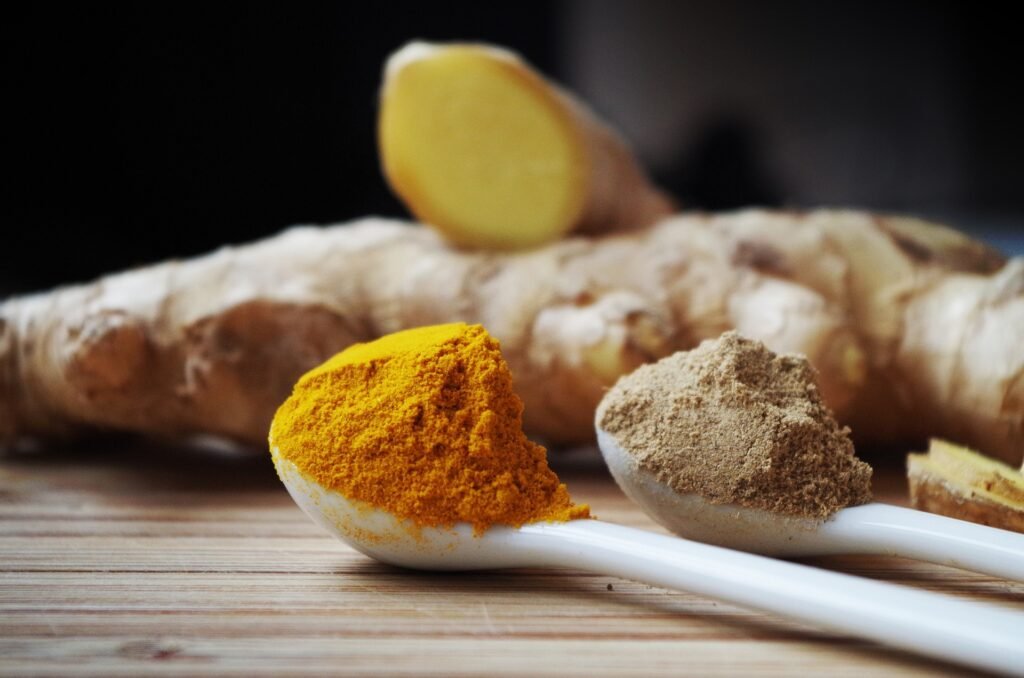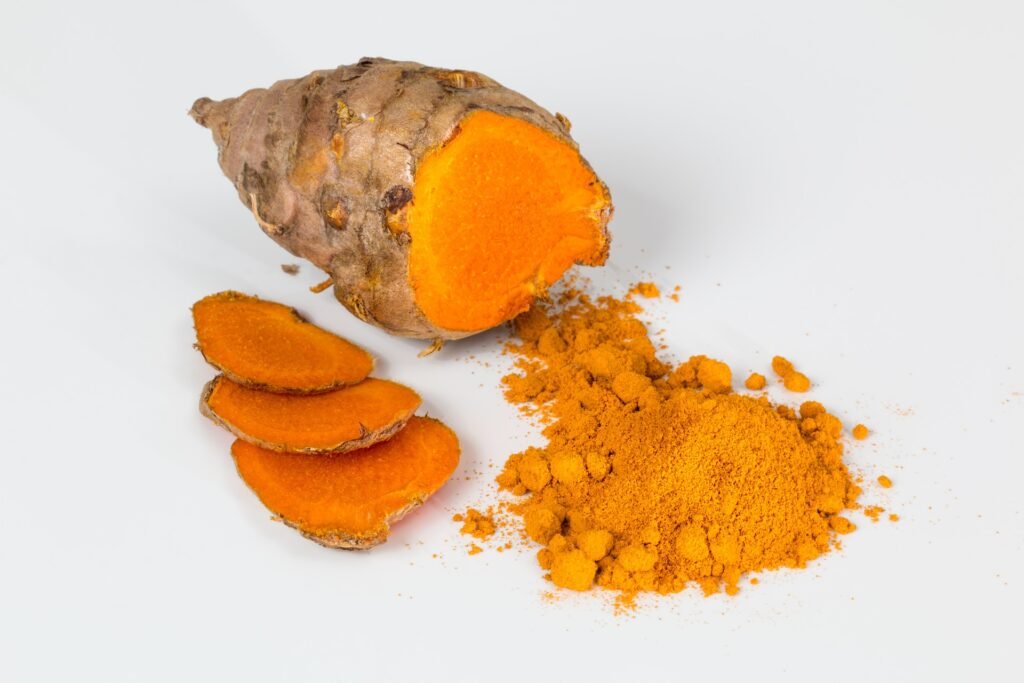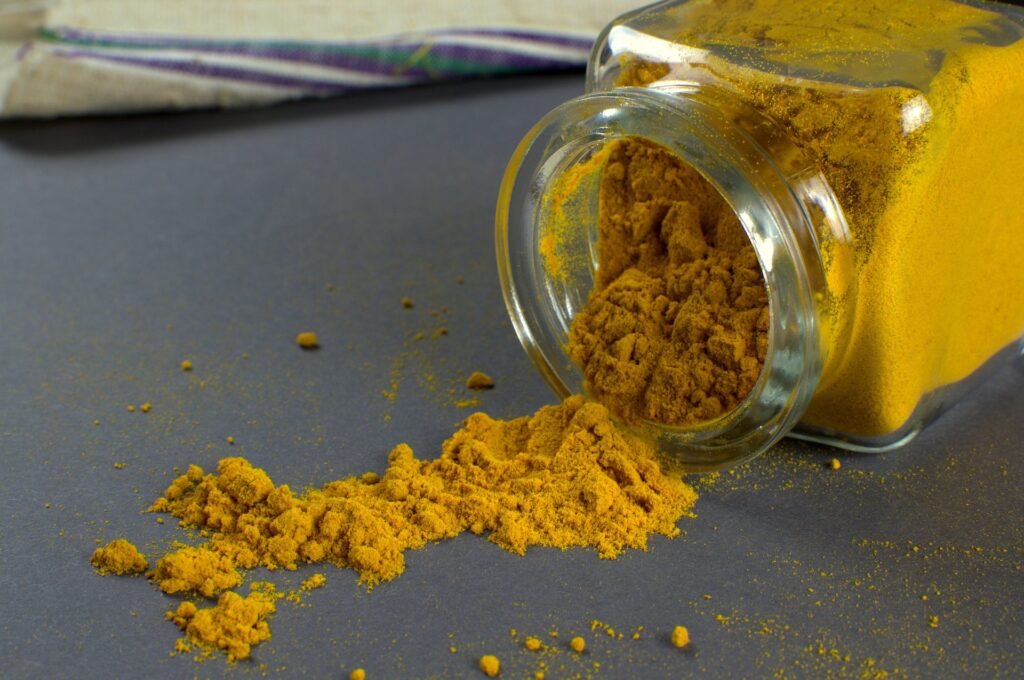Turmeric is a spice that has been used for centuries in traditional Indian and Chinese medicine for its health benefits. It contains a powerful antioxidant called curcumin that has been shown to have anti-inflammatory properties and numerous health benefits. In recent years, turmeric has become increasingly popular in the Western world, and now you can find turmeric supplements in many forms, including gummies. In this blog, we'll discuss the health benefits of turmeric gummies, how they work, scientific evidence supporting their effectiveness, and dosage and usage information.


1. The benefits of turmeric gummies
a. Anti-inflammatory properties: Turmeric contains curcumin, which has been shown to have potent anti-inflammatory effects. Inflammation is linked to many chronic diseases, including cancer, heart disease, and Alzheimer's disease. A 2017 review of clinical trials found that curcumin has significant anti-inflammatory effects and could be useful in treating inflammatory diseases (https://www.ncbi.nlm.nih.gov/pubmed/28074653).
b. Improved brain function: Curcumin has been found to increase brain-derived neurotrophic factor (BDNF), which is a growth hormone that functions in the brain. BDNF levels are often lower in people with depression and Alzheimer's disease. A study published in the Journal of Psychopharmacology found that a daily dose of curcumin improved memory and attention in older adults (https://journals.sagepub.com/doi/abs/10.1177/0269881116675512).
c. Lower risk of heart disease: Curcumin has been found to improve the function of the endothelium, which is the lining of blood vessels. Dysfunction of the endothelium is a significant contributor to heart disease. A randomized controlled trial found that curcumin improved endothelial function as effectively as exercise, and even more effectively than the drug Atorvastatin (https://www.ncbi.nlm.nih.gov/pubmed/23146777).
d. Potential cancer-fighting properties: Some studies have suggested that curcumin may have anti-cancer effects. A review of clinical studies found that curcumin has shown promise in preventing and treating several types of cancer, including breast, colon, and pancreatic cancer (https://www.ncbi.nlm.nih.gov/pubmed/29251365).
e. Anti-aging properties: Curcumin has been found to have antioxidant properties, which can help protect against oxidative damage caused by free radicals. Oxidative damage is thought to contribute to aging and many diseases. A study published in the Journal of Cosmetic Dermatology found that a topical cream containing curcumin improved the appearance of fine lines and wrinkles in human skin (https://onlinelibrary.wiley.com/doi/abs/10.1111/jocd.12024).
These are just a few of the many potential benefits of turmeric and curcumin. However, it's important to note that the studies mentioned are not all conclusive, and more research is needed to fully understand the potential health benefits of turmeric gummies.


2. How Turmeric Works
Turmeric works by blocking the production of inflammatory enzymes in the body. Inflammation is a natural response of the body's immune system to injury or infection, but when it becomes chronic, it can lead to a range of health problems, including arthritis, heart disease, and cancer. Curcumin, the active ingredient in turmeric, has been shown to reduce inflammation by blocking the production of these enzymes.
In addition to its anti-inflammatory properties, curcumin also has antioxidant properties. Antioxidants are substances that can prevent or slow damage to cells caused by free radicals, which are unstable molecules that can damage cells and contribute to aging and diseases like cancer. Curcumin can neutralize free radicals and prevent them from causing damage to cells.
3. The ingredients in turmeric gummy
The exact number of ingredients and their proportions in turmeric gummies may vary depending on the specific product and brand. However, in general, turmeric gummies contain a few key ingredients.
a. Turmeric Extract: The main active ingredient in turmeric gummies is turmeric extract, which is derived from the roots of the turmeric plant. The amount of turmeric extract in each gummy can vary, but it is usually listed on the label in milligrams (mg).
b. Gelatin: Gelatin is a protein made from animal collagen, and it is commonly used as a gelling agent in gummies. It gives the gummies their chewy texture and helps them hold their shape.
c. Sweeteners: Turmeric gummies may contain various sweeteners such as sugar, corn syrup, honey, or natural sweeteners like stevia or monk fruit extract. The proportion of sweeteners can vary, depending on the desired sweetness level.
d. Flavorings: To enhance the taste of turmeric gummies, they may contain natural or artificial flavorings such as citrus, berry, or ginger.
e. Other Ingredients: Turmeric gummies may contain other ingredients, such as citric acid, for flavor enhancement, or pectin, which is a vegetarian alternative to gelatin.
The proportion of turmeric in turmeric gummies can vary depending on the specific product and brand. Generally, the amount of turmeric per gummy can range from 50mg to 200mg. However, it's important to note that the amount of turmeric does not necessarily reflect its potency or effectiveness. Other factors such as the quality of the turmeric extract, the presence of other ingredients that may enhance absorption or bioavailability, and the recommended dosage can also impact the overall benefits of the turmeric gummies. It's always recommended to carefully read the label and follow the instructions provided by the manufacturer.
4. Dosage and Usage
The dosage of turmeric gummies can vary depending on the brand and formulation. However, the general recommended dosage is around 1-2 gummies per day, which is equivalent to 500-1000mg of turmeric extract.
It's important to note that the recommended dosage may vary based on the concentration of turmeric in the gummies and individual factors such as age, weight, and health status. Therefore, it's best to consult with a healthcare professional before taking turmeric gummies, especially if you have any underlying health conditions or are taking medication.


5. side effects
While turmeric gummies are generally considered safe, there are some potential side effects that you should be aware of. These side effects may include:
Stomach upset: Some people may experience mild gastrointestinal symptoms such as nausea, diarrhea, or bloating when taking turmeric gummies.
Blood thinning: Turmeric has blood-thinning properties and may interfere with blood clotting. If you are taking blood-thinning medication, it's important to consult with your healthcare provider before taking turmeric gummies.
Allergic reactions: In rare cases, turmeric may cause an allergic reaction, especially if you are allergic to plants in the ginger family.
Interactions with certain medications: Turmeric may interact with certain medications, including blood-thinning drugs, diabetes medications, and drugs that reduce stomach acid.
It's always important to read the label of your turmeric gummies and follow the recommended dosage. If you experience any side effects or have any concerns, be sure to consult with your healthcare provider.
6. How to choose the turmeric gummies that suits you?
As a wholesaler, choosing the right turmeric gummies can be challenging. With so many options on the market, it's important to consider a few key factors when making your decision. Here are some tips to help you choose the turmeric gummies that suit your needs:
a. Quality: Look for turmeric gummies made with high-quality ingredients and manufactured by reputable companies with a good track record. Check for third-party testing and certification to ensure purity and potency.
b. Ingredients: Check the list of ingredients to ensure that the gummies contain only natural, high-quality ingredients. Avoid gummies with fillers, artificial colors, or preservatives.
c. Dosage: Check the recommended dosage of the turmeric gummies you are considering. It's important to choose a product that provides an effective dose of turmeric, typically at least 500mg of curcuminoids per serving. Be wary of products that provide a lower dose of turmeric, as they may not provide the desired health benefits.
d. Reviews: Check reviews from other customers who have used the turmeric gummies you are considering. Look for products with high ratings and positive feedback, and consider any negative reviews and complaints to help you make an informed decision.
e. Price: Compare prices of different turmeric gummies to find the best value for your money. Be wary of products that are significantly cheaper than others, as they may contain lower-quality ingredients or provide a lower dose of turmeric.
f. Brand Reputation: Consider the brand's reputation, customer reviews and ratings, and overall reputation in the industry.
g. Availability: Check the availability of the turmeric gummies you want to sell, and make sure the supplier has a steady supply chain to ensure that you can keep your customers satisfied.
By taking these factors into account, you can choose high-quality turmeric gummies that will meet your customers' needs and help your business thrive.


7. What are the market data for turmeric Gummies in the world?
a. North America:
Turmeric is a popular ingredient in the North American market, with a growing demand for turmeric-based supplements and products. According to a report by Grand View Research, Inc., the North American turmeric market size was valued at USD 1.37 billion in 2020 and is expected to grow at a CAGR of 8.5% from 2021 to 2028.
(https://www.grandviewresearch.com/industry-analysis/north-america-turmeric-market)
Turmeric gummies are widely available in health food stores and online retailers in the US. According to data from SPINS, a retail sales tracking company, turmeric supplements had a sales growth of 14.8% in the natural channel in 2020. According to a survey conducted by the Council for Responsible Nutrition (CRN), turmeric/curcumin supplements were the seventh most popular dietary supplement among U.S. adults in 2020, with 21% of adults reporting they had taken them in the past year. In addition, the market research firm IRI reported that turmeric supplements had a sales growth of 26.2% in the drug store channel in the same year.
The scientific basis for the popularity of turmeric in North America lies in its proven health benefits, particularly its anti-inflammatory properties. There have been many studies on the benefits of curcumin, the active ingredient in turmeric, in reducing inflammation and improving brain function.
(https://www.ncbi.nlm.nih.gov/pmc/articles/PMC5664031/)
b. Europe:
The European market for turmeric is also growing, with a focus on turmeric-based supplements and natural remedies. According to a report by Mordor Intelligence, the European turmeric market is expected to grow at a CAGR of 6.5% from 2020 to 2025.
(https://www.mordorintelligence.com/industry-reports/europe-turmeric-market-industry)
In the United Kingdom,turmeric supplements are widely available in health food stores and online retailers. According to a report by Mintel, the use of turmeric as a functional food ingredient in the UK has grown significantly in recent years, with a 46% increase in new product launches containing turmeric between 2015 and 2018. According to data from Euromonitor International, the sales of turmeric supplements in the UK increased by 52% in 2020 compared to the previous year.
The scientific basis for the popularity of turmeric in Europe is similar to that in North America, with a focus on the anti-inflammatory and antioxidant properties of curcumin. Additionally, turmeric has been traditionally used in Ayurvedic medicine in India, which has gained popularity in Europe as a natural health remedy.
(https://www.ncbi.nlm.nih.gov/pmc/articles/PMC5852989/)
c. Asia-Pacific:
The Asia-Pacific region is the largest producer and consumer of turmeric in the world, with a long history of using turmeric in traditional medicine and cuisine. According to a report by Data Bridge Market Research, the Asia-Pacific turmeric market is expected to grow at a CAGR of 9.7% from 2020 to 2027.
(https://www.databridgemarketresearch.com/reports/asia-pacific-turmeric-market)
In India, turmeric has been used for centuries for its medicinal properties, and turmeric gummies are gaining popularity as a convenient and tasty way to consume this beneficial spice. According to a report by Research and Markets, the Indian market for turmeric was valued at approximately USD 72 million in 2020 and is expected to reach approximately USD 120 million by 2025, growing at a CAGR of 10.8% from 2020 to 2025.
The scientific basis for the popularity of turmeric in the Asia-Pacific region lies in its traditional use as a natural remedy for various health conditions, including inflammation, digestive issues, and skin problems. There is also a growing interest in turmeric as a functional food ingredient in the region.
(https://www.ncbi.nlm.nih.gov/pmc/articles/PMC5664031/)
d. Middle East and Africa:
The Middle East and Africa region has a long history of using turmeric in traditional medicine, and there is a growing interest in turmeric-based supplements and natural remedies in the region. According to a report by TechSci Research, the Middle East and Africa turmeric market is expected to grow at a CAGR of 5.2% from 2021 to 2026.
(https://www.techsciresearch.com/report/middle-east-and-africa-turmeric-market/4967.html)
The scientific basis for the popularity of turmeric in the Middle East and Africa lies in its traditional use as a natural remedy for various health conditions, including digestive issues, skin problems, and joint pain. Additionally, there have been studies on the potential anti-cancer properties of curcumin, which has gained interest in the region.
(https://www.ncbi.nlm.nih.gov/pmc/articles/PMC5852989/)
Conclusion:
In conclusion, the market for turmeric gummies is growing rapidly across the world, with North America being the largest market currently. Europe, Asia Pacific, and Latin America are also experiencing significant growth in the market for turmeric gummies.


